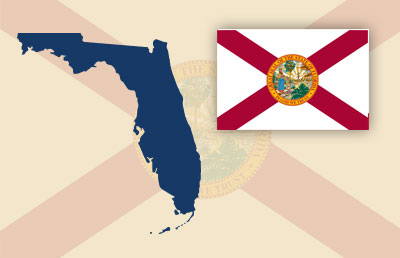Florida Adopts Provisions Regarding Unlawful Rebates and Inducements Relating to Title Insurance Transactions

The Florida Department of Financial Services, Division of Insurance Agents and Agency Services, has recently adopted provisions regarding unlawful rebates and inducements relating to title insurance transactions. These provisions are effective on May 13, 2018.
The purpose of the bill is to clarify what constitutes an “unlawful rebate” with regard to a transaction involving the purchase of title insurance. The crux of the bill is that, in general, the reimbursement or reduction of any premium, costs, or fees in a contract for the placement of title insurance, or the provision of any non-specified benefit or valuable consideration that also serves as an inducement in the placement of title insurance, is an unlawful rebate.
The bill identifies a long list of activities that, in conjunction with a transaction for the purchase of title insurance, whether performed directly or indirectly, for or by any referrer of settlement service business, are considered unlawful inducements for the sale, placement, or referral of title insurance. Several of the bill’s examples are as follows:
(a) Facilitating any discount, reduction, credit, or paying any fee or portion of the cost of an inspection, inspection report, appraisal, or survey to or for a purchaser or prospective purchaser of title insurance; (b) Providing membership in any organization, society, association, guild, union, alliance or club at a discount, reduced rate, or at no cost to a referrer of settlement service business; (c) Making or offering to make a charitable or other tax-deductible contribution on behalf of the purchaser or prospective purchaser of title insurance; (d) Providing or offering stocks, bonds, securities, property, or any dividend or profit accruing or to accrue thereon to a referrer of settlement service business; (e) Providing or offering employment to a referrer of settlement service business in exchange for the purchase of title insurance; (f) Providing or paying for the printing of bulletins, flyers, post cards, labels, etc. that promote the business of a referrer of settlement service business; (g) Furnishing or paying for the furnishing of office equipment to a referrer of settlement service business; or (h) Providing or paying for cellular telephone contracts for a referrer of settlement service business.
The bill then clarifies several expenditures that would not be considered unlawful rebates. The bill provides a list of examples, including: (a) Promotional items with a company logo of the title insurance agent or agency, with a value not to exceed the amount allowed by paragraph 626.9541(1)(m), F.S., per item. “Promotional item” does not include a gift certificate, gift card, or other item that has a specific monetary value on its face, or that may be exchanged for any other item having a specific monetary value; (b) Furnishing educational materials, such as fliers, brochures, pamphlets, or Frequently Asked Question sheets, exclusively related to title insurance for a referrer of settlement service business that are not conditioned on the referral of business and that do not involve the defraying of expenses that otherwise would be incurred by a referrer of settlement service business; or (c) Compensation paid to a referrer of settlement service business for goods and services actually performed at amounts not exceeding the reasonable fair market value of the goods and services and that is not intended to induce the referral of title insurance business.
The full text of the bill, including the full list of unlawful rebates and exceptions, is available at:
https://www.flrules.org/gateway/ruleno.asp?id=69B-186.010
Zachary Pearlstein, JD, is a Regulatory Compliance Director with CLA's Mortgage Advisory Division. He joined CLA on January 1, 2014, as part of its acquisition of Bankers Advisory, Inc. Zachary oversees Mortgage Advisory's regulatory compliance team, which focuses on federal and state compliance, fair lending, and the Home Mortgage Disclosure Act (HMDA). He is a graduate of Brandeis University and earned his juris doctor at Suffolk University Law School. He is admitted to the Massachusetts Bar.

Comments are closed.